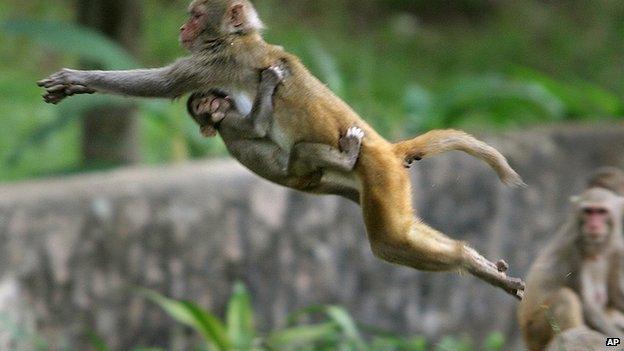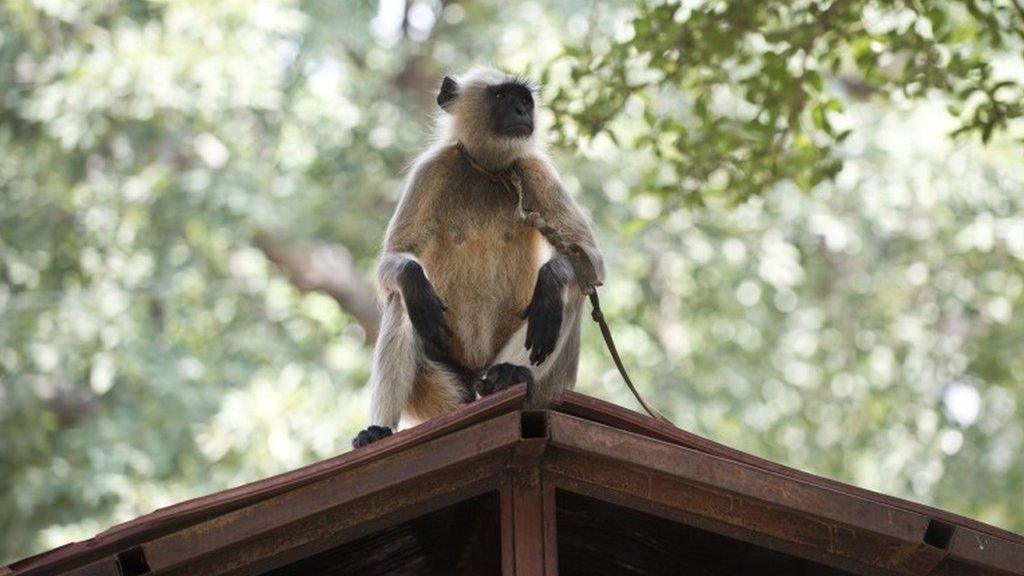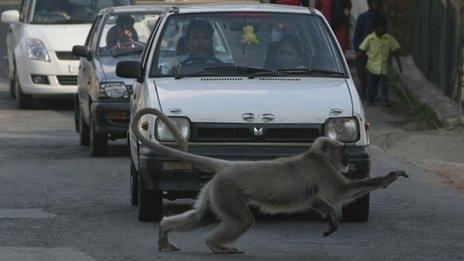Monkeys 'hinder India internet drive'
- Published

Macaque monkeys are considered sacred by Hindus, who often feed them
Macaque monkeys appear to have become an unlikely roadblock in the development of internet services in the northern Indian city of Varanasi.
The authorities in Varanasi have been increasing the network of optical fibre cables as part of Prime Minister Narendra Modi's plan of improving internet services in India.
The federal government has planned to lay 700,000 km (435,000 miles) of broadband cable to connect India's 250,000 village clusters within three years.
But officials in the city in Uttar Pradesh state are struggling to stop monkeys from eating the fibre-optic cables, the Reuters news agency reports.
"We cannot move the temples from here. We cannot modify anything here, everything is built up. The monkeys, they destroy all the wires and eat all the wires," communications engineer AP Srivastava told the news agency.
Varanasi, which is also the parliamentary constituency of Mr Modi, is known as as a holy city and millions visit its famous banks along the Ganges river every year.
Many such tourists, and even locals, consider macaque monkeys sacred and often feed them.
Mr Srivastava told the news agency that his team was now looking for alternatives, but there are few to be found.
Varanasi is a crowded city and its infrastructure has hardly changed in the past decades.
Houses and building are too close to each other, making it difficult for authorities to consider laying underground cables.
And chasing away the monkeys is also not an option because it may anger local residents.
BBC Monitoring, external reports and analyses news from TV, radio, web and print media around the world. You can follow BBC Monitoring on Twitter , externaland Facebook, external.
- Published2 August 2014

- Published28 November 2011

- Published20 October 2010